Middle East & North Africa Green Cities Study Tour
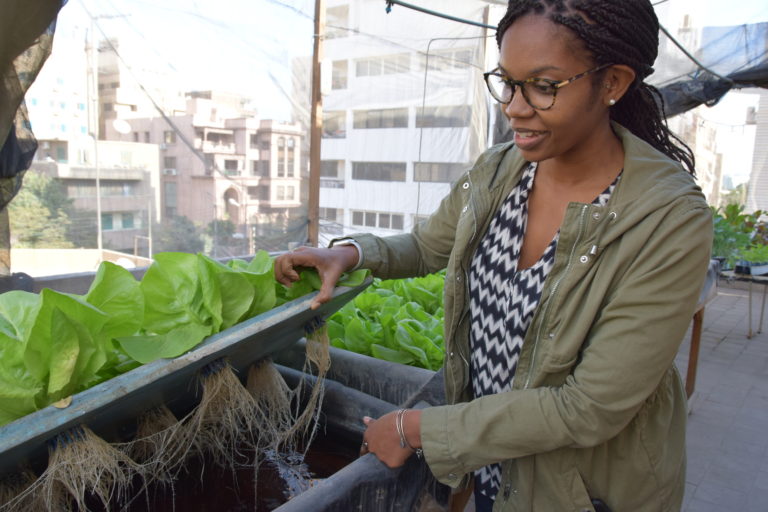
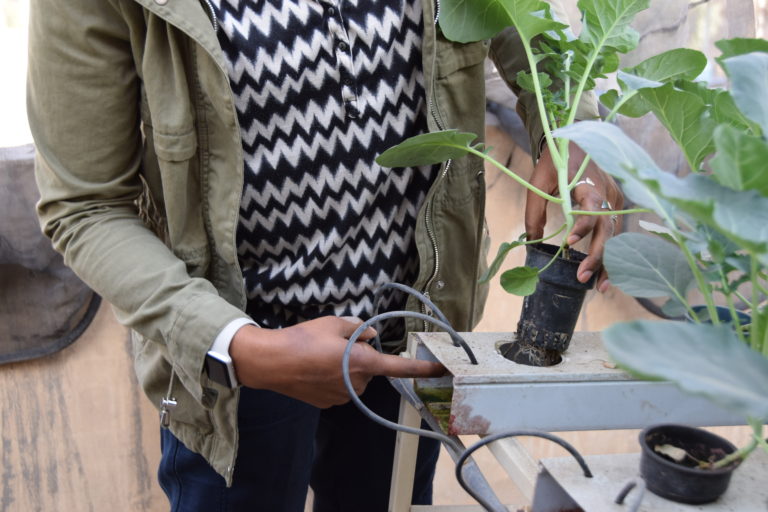
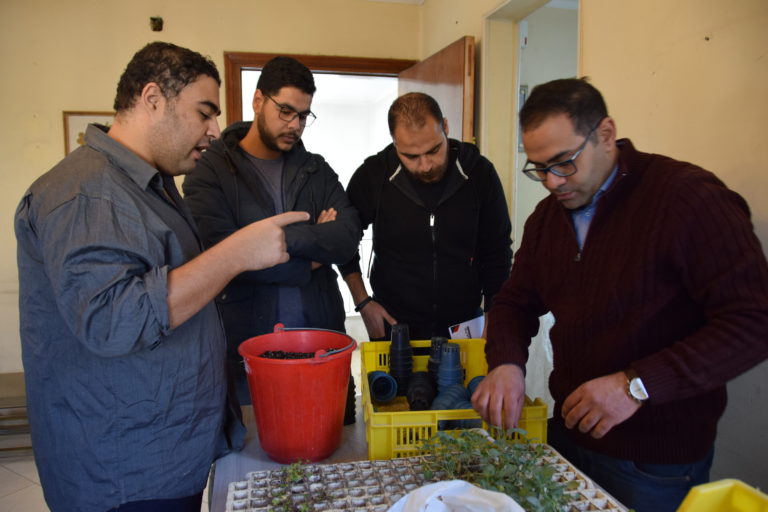
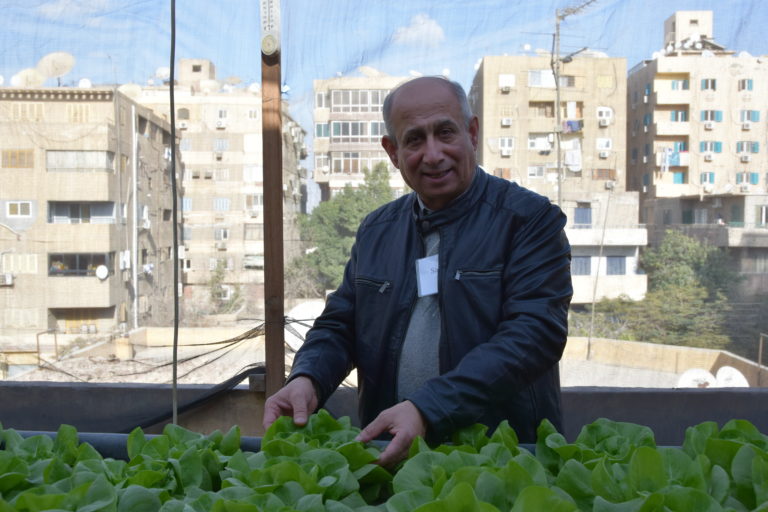
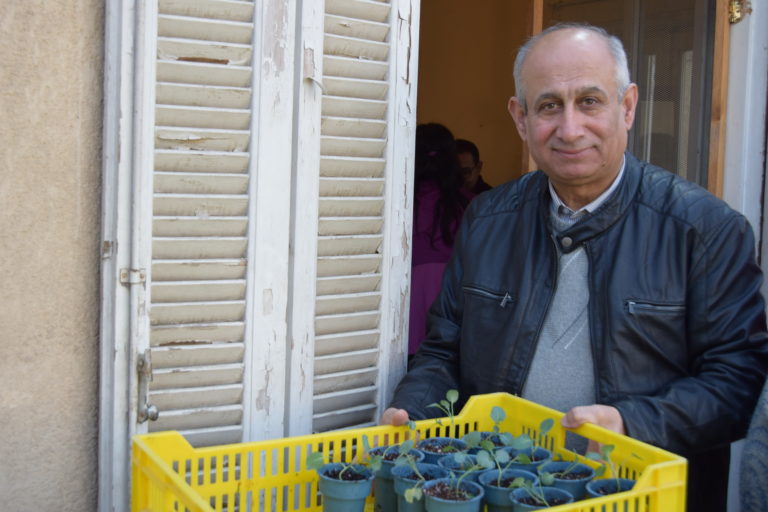
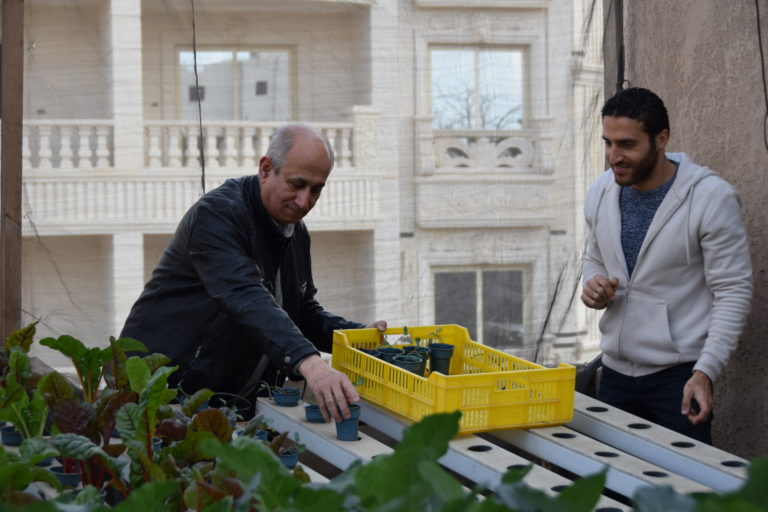

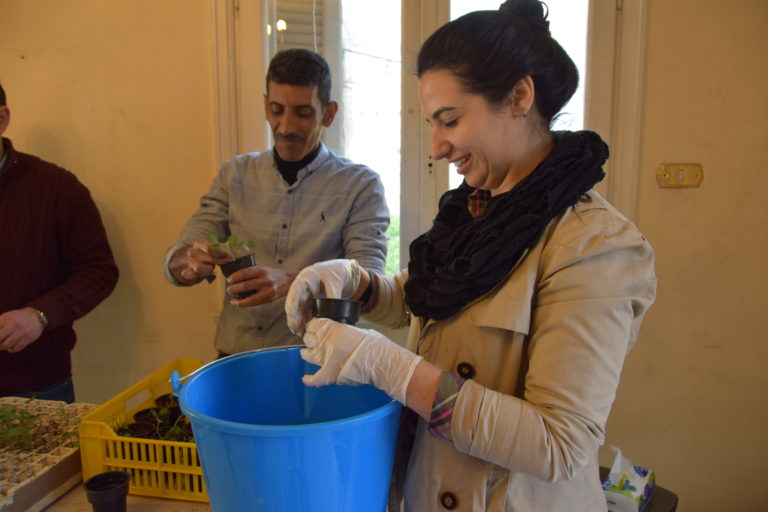
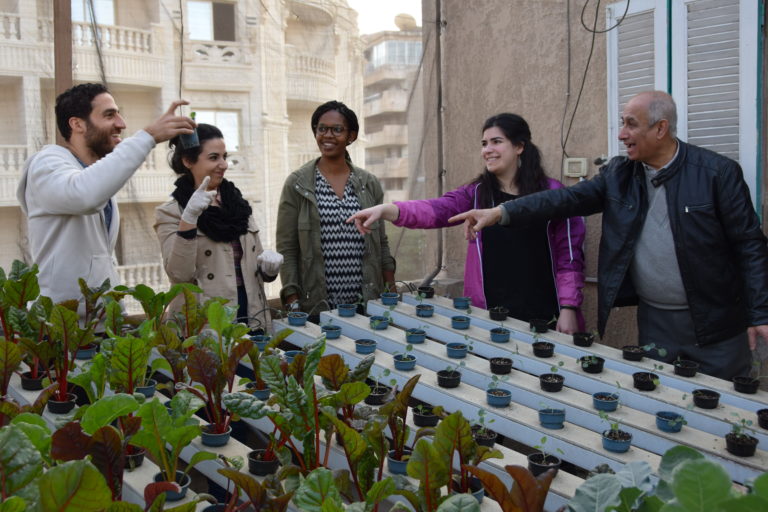
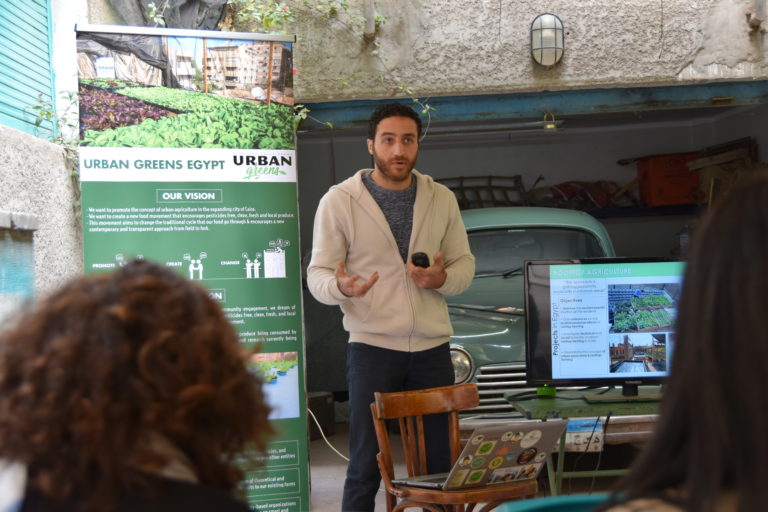
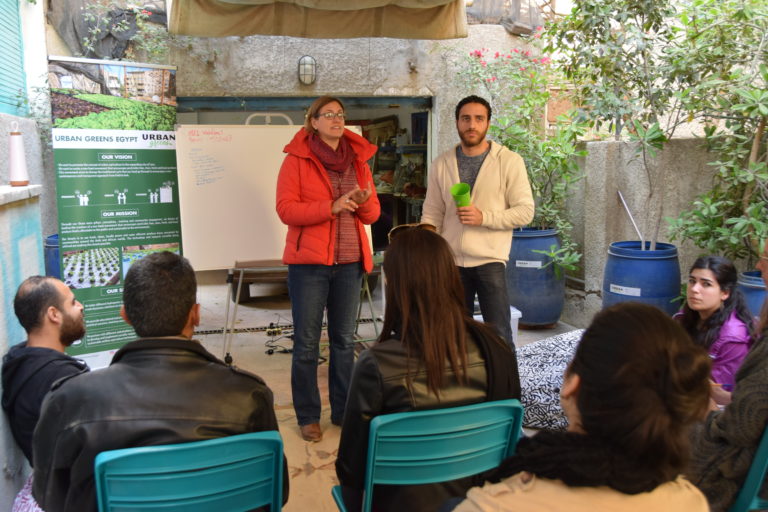
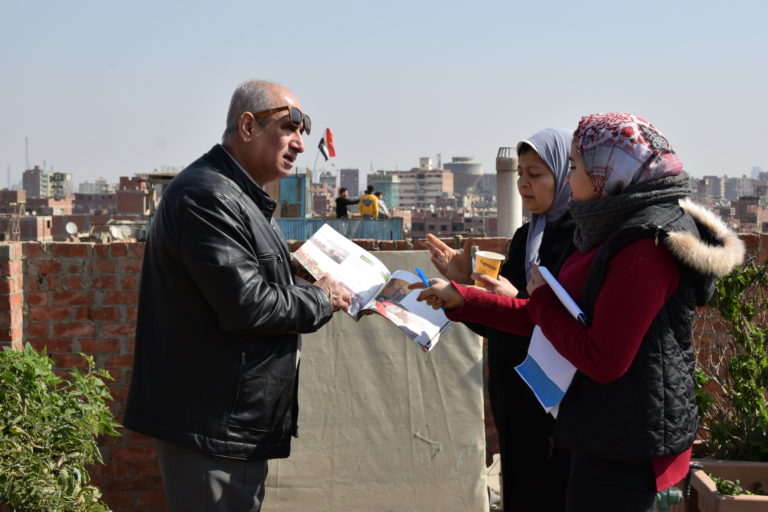
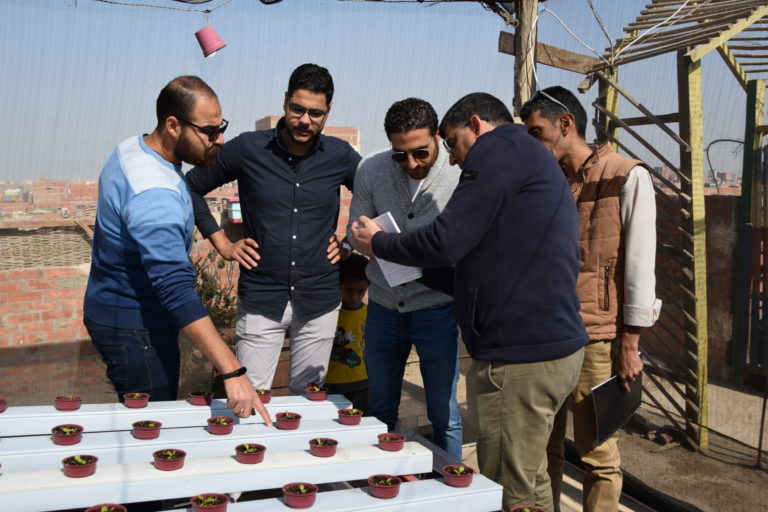
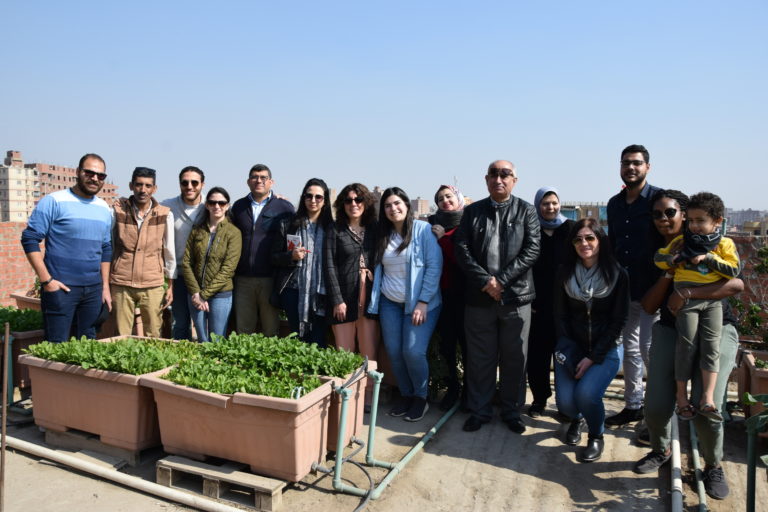
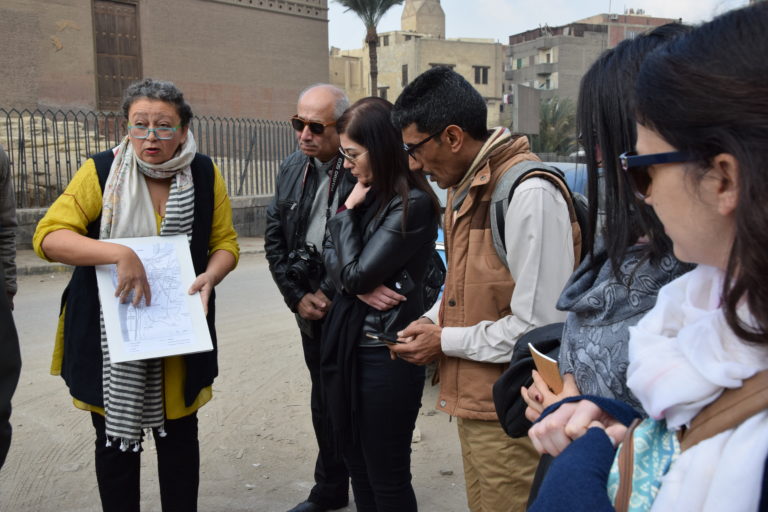
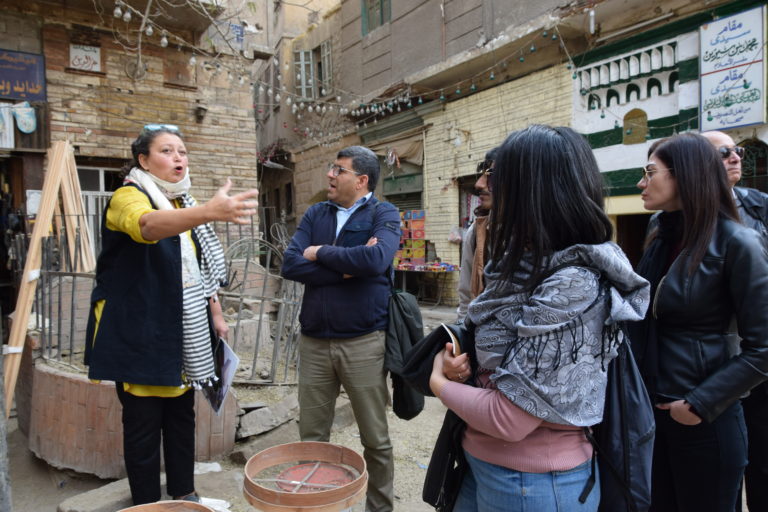
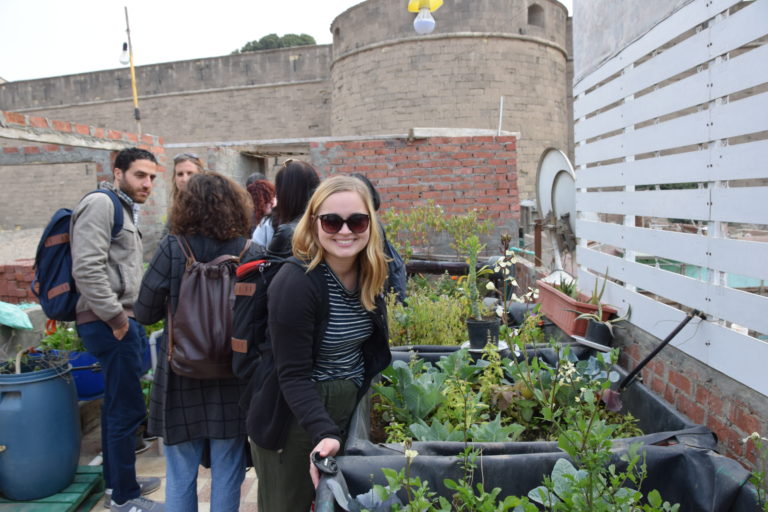
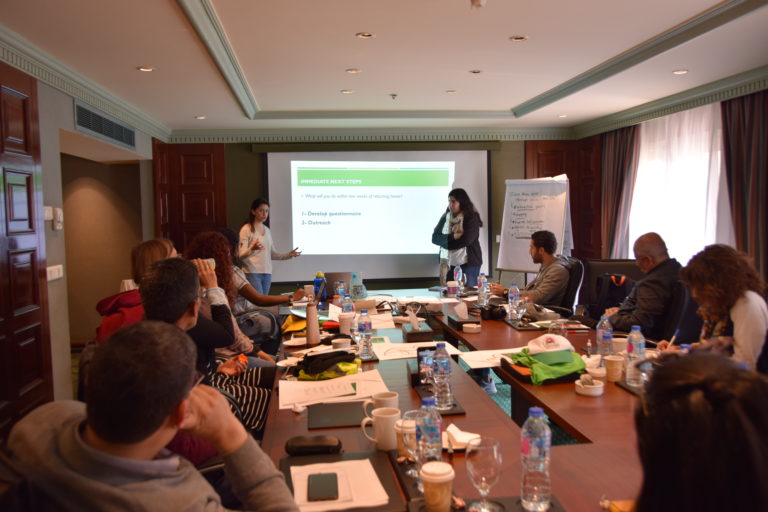
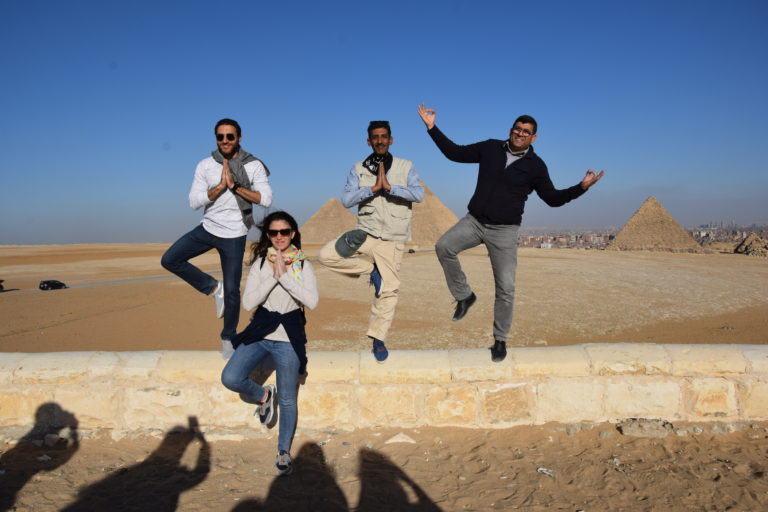
Welcome to the 2020 Middle East and North Africa Green Cities Study Tour, sponsored by the U.S. Forest Service International Programs.
Wednesday, 29 January 2020 – Thursday, 6 February 2020
Description
The Green Cities Study Tour was conceptualized following the USFS Urban Forestry and Community Engagement seminar in June 2020, during which three participants from Egypt, Lebanon, and Tunisia discovered their shared areas of work in urban environmental initiatives. In the interest of supporting and expanding these programs, U.S. Forest Service International Programs is piloting a regional study tour to reconnect these participants and their colleagues in order to share best practices and generate new ideas related to urban forestry. This pilot study tour will take place in Cairo, Egypt as there are a number of organizations working on various urban greening projects, including a green roof project based at the University of Cairo, a key example in which other countries have expressed interest in learning from. In addition to visiting a number of urban environmental programs, the participants will spend time working with USFS consultants, and each other, to discuss best practices from the region and generate ideas for new programs. Following this pilot study tour, participant feedback and trip outcomes will be used to asses future year study tours that will look to showcase activities and programs in other countries within the region.
Objectives
- Facilitate learning opportunities and coaching for program development focused in urban areas including, but not limited to, green rooftops; waste management; and urban revitalization.
- Support USFS partners in developing innovative environmental projects that can benefit urban communities by improving air quality, waste management, temperature reduction, and creating community gathering spaces.
- Promote collaboration among regional partners and former seminar participants.
Content
- Green rooftops and other innovating greening solutions
- Productive purposes: rooftop farms, livelihoods, etc.
- “Greenspace” for other purposes: community use, architecture, air quality, etc.
- Composting, recycling, and creative waste management solutions.
- Multi-sectoral Partnerships: working with universities, schools, private citizens, municipalities, etc.
- Urban revitalization: parks, historical areas, etc.
- Social Assessments (related to community-centered projects)
- Economic viability and sustainability (related to productive projects)
- Youth engagement and education
Participating Countries:
Egypt, Lebanon, West Bank, Tunisia, Jordan
Coordinating Team
IP Staff: Grace Swanson, Kristina Bell, Jonathan Palmrose
Subject Matter Experts: Erika Svendsen, Abdallah Tawfic (local liaison)
PROGRAM SCHEDULE
Wednesday, January 29th
Arrivals
Thursday, January 30th
9:00am Meet in lobby for departure to AUC
10:00am Orientation & Logistics
11:30am-12:00pm Overview of Urban Forestry
12:15-12:45pm Participant presentations
Lunch
1:30-2:00pm Participant presentations (continued)
2:15-3:15pm Campus sustainability & rooftop garden tour
3:30-4:00pm Overview of system impact, tools and approaches to solve problems
4:00-5:00pm Greenroof social-economic assessments
7:00pm Group Dinner
Friday, January 31st
9:00am Monitoring and Impact
10:15am Depart for Urban Greens
10:30am Meeting with Urban Greens
Lunch
1:00-3:00pm Egyptian Rooftop Network Meeting, planting demonstration
3:00pm Networking
Coaching time available in afternoon
Saturday, February 1st
9:00am Depart for Shubra Qubala
Lunch
3:00pm Return to Cairo
Sunday, February 2nd
7:30am Depart for Shagara
8:30-10:30am Site Visit to Shagara
10:30am Depart for Mish Madrasa
11:30am-1:30pm Meeting with Mish Madrasa
Lunch
1:30pm Depart Mish Madrasa for Schaduf
2:30-4:30pm Meeting with Schaduf
Monday, February 3rd
9:00am Depart for Marriott for Megawra
9:30am-12:00pm Meeting with Megawra
Lunch
1:00pm Depart Megawra for Hattaba
1:00-2:30pm Hattaba Community Roof
3:00-4:00pm Citadel Park: peer learning & coaching
Tuesday, February 4th
8:30am Depart for Zabaleen
9:00-11:00am Meeting with Zabaleen
11:00am Visit to Cave Church
12:00pm Depart Zabaleen for Al Azhar Park
Lunch
1:30-3:30pm Meetings and Tour of Al Azhar Park
3:30pm-4:00pm Group reflections and discussion
4:00pm Depart Al Azhar Park for Kahn al Khalili Bazaar
6:00pm Group Dinner
Wednesday, February 5th
8:30am Meet in Marriott Conference Room
Final Presentations, Reflections, Closing Discussions
Lunch
12:00pm Depart Marriott for the Pyramids
1:00-3:00pm Pyramid Sightseeing
6:30pm Final Dinner
Thursday, February 6th
Departures
PROGRAM PARTICIPANTS
 KAWTHER FATNASSI, TUNISIA
KAWTHER FATNASSI, TUNISIA
My name is Kawther Fatnassi. I was born in October 17th, 1991 in Mednine, Tunisia. I’m a graduate of letters and Human Sciences faculty of Rakkada, where I majored in English Language. I joined the APNEK (Association of Nature and Environment Protection) in October 2019, as an assistant for the project of development of an integrated and sustainable management strategy for household and similar wastes in the municipality of Kairouan, Tunisia. My passion for nature led me to join the APNEK team. I currently live in Kairouan, Tunisia with my parents. When I’m not busy in my office, you can find me in the Gym, practicing sports.
 DIANA NAGHWAI, JORDAN
DIANA NAGHWAI, JORDAN
I’m a professional with over 13 years of experience. I hold a BA degree in English Literature and Translation and Mini MBA.
I started my career with the United Nations Human Settlements Program (UN-Habitat) Jordan and Iraq Programs for 11 years then as a Consultant for the UN-HABITAT gulf mission. I then moved to USAID-funded projects including the Reading and Math Project (RAMP) and the Sustainable Environment and Economic Development Project (SEED) that ended on January 2019. However, following the success of SEED project, I assisted in the establishment of WADI for Sustainable Ecosystems Development NGO in December 2018 under the Ministry of Environment that is currently implementing the Watershed and Development Initiative
(WADI Project) funded by the US Forest Service (USFS) with a vision to advance water conservation and land stewardship practices to build resilient communities and healthy watersheds by actively engaging local communities in building shared ownership in science-based practices that foster land ethics, sustainable water conservation and land stewardship and to create viable ecosystems by establishing soil and water conservation sites that serve as reference models for scaling watershed restoration techniques. I believe that WADI’s vision and our efforts will pay-off and help in creating a better environment and a water-secure future taking into consideration the impacts of climate change and the fact the Jordan is ranked among the most water scarce countries.
I am pleased to participate in the USFS Cairo study tour and eager to learn and acquire additional knowledge that would help in advancing WADI project.
 SARAH ABLA, LEBANON
SARAH ABLA, LEBANON
LRI aims to expand, manage and protect Lebanon’s forests and landscapes through a community-based approach by implementing diverse projects such as Urban Forestry nested under Livelihood in Forestry. Despite my position as an accountant and mostly being concerned with the administrative aspects however Urban Forestry is a project I felt closest to as I have lived in the capital city for most of my life surrounded by more concrete than green space while being aware of its negative effects from a young age. Within the heavily populated cities we have in Lebanon it has become imperative to refocus the infrastructure development into a greener one as a means to improve lives whether by rehabilitating existing public parks, upgrading the quality of street trees to better filter our air as well as educating the youth and adults alike on the need to preserve green spaces.
MOHAMED MEHDI NAKHLI, TUNISIA
Mohamed is a Civil Engineer from Kairouan, Tunisia, where he serves as the Regional Director of the National Waste Management Agency, ANGed. He holds a degree in engineering from the National School of Engineers of Gabès.
JIHAD ZAWAIDAH, JORDAN
 I am currently the Field Technical Support Officer at WADI (Watershed and Development Initiative).
I am currently the Field Technical Support Officer at WADI (Watershed and Development Initiative).
My experience is mixed from previous experience working with Peace Corps/ Jordan as Logistics Assistant; over the past two and half years, I built gained a training of trainers’ certificate on modern agricultural systems; furthermore, thanks to my director and colleagues, I tremendously improved my skills and knowledge in all aspects of watershed management including the complete value chain for the production of high-quality native rangeland and forest seedlings through active engagement of local communities, restoration practices, pilot projects that will be used as reference sites for upscaling of restoration in similar parts of Jordan, and finally providing awareness to school students on climate change and its effects on the livelihoods, and WADI’s role in mitigating them.
SAMIH ABU ZAKIEH, PALESTINE
 Artist , Director, Palestinian Child Arts Center (PCAC)
Artist , Director, Palestinian Child Arts Center (PCAC)
I am an artist, with good experience in graffiti art and children’s art, and have an important role in training and designing cultural programs for children and youth in art education and in children arts . I have taken part in many conferences in USA , Palestine, Arab countries, and other international conferences and seminars. I am also responsible for many programs for raising awareness and dealing with art and graffiti issues. The aim of these programs is to explore how to use art in a peaceful way, and keep the children of Palestine safe .
I have new art project (100 ways for peace from Palestine).
JULIA HANI, UNITED ARAB EMIRATES
 My name is Julia Hani. I’m 24 years old, born in the United Arab Emirates and living in Lebanon. I’m a project coordinator with the Lebanon Reforestation Initiative, a local NGO with a mission to have communities in Lebanon sustainably managing their forests & landscapes for the benefit of the environment and their wellbeing. We work on building resilient communities to environmental threats, increasing environmental awareness and education, advocating for forest conservation, and advancing research in the forestry field. I’m an UFCE alumni, class of 2019.
My name is Julia Hani. I’m 24 years old, born in the United Arab Emirates and living in Lebanon. I’m a project coordinator with the Lebanon Reforestation Initiative, a local NGO with a mission to have communities in Lebanon sustainably managing their forests & landscapes for the benefit of the environment and their wellbeing. We work on building resilient communities to environmental threats, increasing environmental awareness and education, advocating for forest conservation, and advancing research in the forestry field. I’m an UFCE alumni, class of 2019.
LOCAL LIAISONS
TINA JASKOLSKI
 Tina Jaskolski is an assistant professor of sustainable development at the School of Sciences and Engineering. Jaskolski also teaches for the master of sustainable development degree program and has previously taught in the Institute of Gender and Women’s Studies. She holds a PhD from the Australian National University in Human Geography. Jaskolski has carried out research on sustainability and education, governance and community development in Australia, Indonesia, Germany and Egypt. Since joining AUC in 2006, Jaskolski has worked on a large number of community based research and development projects, fostering sustainability, sustainable resource use, renewable energy, waste management and water conservation.
Tina Jaskolski is an assistant professor of sustainable development at the School of Sciences and Engineering. Jaskolski also teaches for the master of sustainable development degree program and has previously taught in the Institute of Gender and Women’s Studies. She holds a PhD from the Australian National University in Human Geography. Jaskolski has carried out research on sustainability and education, governance and community development in Australia, Indonesia, Germany and Egypt. Since joining AUC in 2006, Jaskolski has worked on a large number of community based research and development projects, fostering sustainability, sustainable resource use, renewable energy, waste management and water conservation.
MARIAM DAWOUD
 Mariam Dawoud is a project manager of the “Integrating Community Development and Student Learning through Rooftop Farming Research and Outreach” funded by the U.S. Forest Service. She holds a master’s degree from the Brandenburg University of Technology Cottbus-Senftenberg Germany in Heritage Conservation and Site Management. Dawoud has linked her educational background with environmental sustainability by carrying out research on environmental sustainability and education, heritage and environment sustainability, and community development in different community clusters in Egypt. Since joining the American University in Cairo in 2017, Dawoud has worked on different of community based research and development projects, urban rooftop farming, waste management, water conservation, and sustainable resource use.
Mariam Dawoud is a project manager of the “Integrating Community Development and Student Learning through Rooftop Farming Research and Outreach” funded by the U.S. Forest Service. She holds a master’s degree from the Brandenburg University of Technology Cottbus-Senftenberg Germany in Heritage Conservation and Site Management. Dawoud has linked her educational background with environmental sustainability by carrying out research on environmental sustainability and education, heritage and environment sustainability, and community development in different community clusters in Egypt. Since joining the American University in Cairo in 2017, Dawoud has worked on different of community based research and development projects, urban rooftop farming, waste management, water conservation, and sustainable resource use.
ABDALLAH TAWFIK
 Abdallah is an Architect, Environmentalist and Urban Farmer. He works at the German International Cooperation (GIZ) under the Participatory Infrastructure Project in Urban Areas (PIP) and he is also the cofounder of Urban Greens Egypt, a startup aiming to promote the concept of Urban Agriculture in Cairo.
Abdallah is an Architect, Environmentalist and Urban Farmer. He works at the German International Cooperation (GIZ) under the Participatory Infrastructure Project in Urban Areas (PIP) and he is also the cofounder of Urban Greens Egypt, a startup aiming to promote the concept of Urban Agriculture in Cairo.
USFS COORDINATING TEAM
KRISTINA BELL
 Kristina Bell is a program manager at the U.S. Forest Service International Programs Office in Washington, D.C. She works on the Africa and Middle East team, managing programs in Egypt, Ethiopia and the West Bank. She focuses on community-based environmental development, and seeks to develop mutually beneficial partnerships across the region. Prior to joining the International Programs Office, she worked at the Forest Service headquarters office to help develop and implement a program around engaging youth and veterans in public lands conservation and stewardship. She has a Master’s degree in Public Administration and a Bachelor’s degree in Business Administration from Fordham University.
Kristina Bell is a program manager at the U.S. Forest Service International Programs Office in Washington, D.C. She works on the Africa and Middle East team, managing programs in Egypt, Ethiopia and the West Bank. She focuses on community-based environmental development, and seeks to develop mutually beneficial partnerships across the region. Prior to joining the International Programs Office, she worked at the Forest Service headquarters office to help develop and implement a program around engaging youth and veterans in public lands conservation and stewardship. She has a Master’s degree in Public Administration and a Bachelor’s degree in Business Administration from Fordham University.
GRACE SWANSON
 Grace is a program manager with the U.S. Forest Service, where she manages activities in Lebanon, Rwanda, and Kenya. Prior to joining the Forest Service in 2016, she resided in Amman, Jordan where she worked for a local development agency, designing and implementing environmental, cultural heritage, and refugee support programs in rural areas. Grace holds a B.A. from Loyola University Chicago in International Studies, and is studying for her M.Sc. from the University of Birmingham in International Development (Conflict, Security, and Development).
Grace is a program manager with the U.S. Forest Service, where she manages activities in Lebanon, Rwanda, and Kenya. Prior to joining the Forest Service in 2016, she resided in Amman, Jordan where she worked for a local development agency, designing and implementing environmental, cultural heritage, and refugee support programs in rural areas. Grace holds a B.A. from Loyola University Chicago in International Studies, and is studying for her M.Sc. from the University of Birmingham in International Development (Conflict, Security, and Development).
ERIKA SVENDSEN
 Dr. Erika Svendsen is a social scientist with the USDA Forest Service. Erika is a leader in the field of environmental stewardship as it relates to governance, civic engagement and urban forestry. Erika is the co-director of the NYC Urban Field Station, a special partnership between the US Forest Service, NYC Parks and the Natural Areas Conservancy. The goal of the field station is work at the intersection of research and practice to improve human well-being and the environment. Erika is co-author of the book, How Planting Trees Strengthens the Roots of Democracy and has recently collaborated on a new technical report, Green Readiness, Response and Recovery: A Collaborative Synthesis. Erika is a recipient of the US Forest Service Chief’s Award for engaging urban America and an Early Career Scientist Award for the development of STEW-MAP, a sustainability tool to visualize, amplify and support the work of thousands of community-based groups as they work to care for their local environment. Prior to joining the US Forest Service, Erika was director of NYC Parks GreenThumb city-wide community gardening program, fellowship director for LEAD International and a program associate at The Rockefeller Foundation’s Global Environment Program. Erika publishes regularly in her field and is a frequent writer for the on-line magazine, The Nature of Cities. She received her doctorate in Urban Planning from Columbia University, a M.S. from Yale School of Forestry and Environmental Studies, and a B.A. in Political Science from Allegheny College
Dr. Erika Svendsen is a social scientist with the USDA Forest Service. Erika is a leader in the field of environmental stewardship as it relates to governance, civic engagement and urban forestry. Erika is the co-director of the NYC Urban Field Station, a special partnership between the US Forest Service, NYC Parks and the Natural Areas Conservancy. The goal of the field station is work at the intersection of research and practice to improve human well-being and the environment. Erika is co-author of the book, How Planting Trees Strengthens the Roots of Democracy and has recently collaborated on a new technical report, Green Readiness, Response and Recovery: A Collaborative Synthesis. Erika is a recipient of the US Forest Service Chief’s Award for engaging urban America and an Early Career Scientist Award for the development of STEW-MAP, a sustainability tool to visualize, amplify and support the work of thousands of community-based groups as they work to care for their local environment. Prior to joining the US Forest Service, Erika was director of NYC Parks GreenThumb city-wide community gardening program, fellowship director for LEAD International and a program associate at The Rockefeller Foundation’s Global Environment Program. Erika publishes regularly in her field and is a frequent writer for the on-line magazine, The Nature of Cities. She received her doctorate in Urban Planning from Columbia University, a M.S. from Yale School of Forestry and Environmental Studies, and a B.A. in Political Science from Allegheny College
American University in Cairo (AUC), (https://www.aucegypt.edu/about/sustainable-auc) represented by Dr. Tina Jaskolski and Mariam Dawoud from the CARES team serve as the primary USFS partners for urban forestry/rooftop garden work in Cairo. They focus developing research related to the development of rooftop farming and agricultural growing systems that are simple and economically feasible for informal Cairo residents to replicate. The AUC-CARES team is able to provide science-backed data and solutions to other rooftop gardeners, consultants, and government officials.
Themes:
- Innovative greenroofs
- Research application
- Student engagement and education
- Community outreach
Urban Greens (http://www.urbangreensegypt.com/) is a local business aiming to promote the concept of urban agriculture in the expanding city of Cairo. Their objective is to create a new food movement that encourages pesticides free, clean ,fresh and local produce. This movement aims at changing the traditional cycle that our food go through and encourages a new contemporary and transparent approach from field to table. In addition to providing hydroponic consultant services, the organization engages in social and educational activities including raising urban agriculture and rooftop farming awareness and building community-based partnerships. Urban Greens co-founder Abdallah Tawfic’s rooftop gardening research background and technical experience gained working with AUC offer an example of entrepreneurial possibilities – turning a vision into a business capable of addressing the multiple needs of informal areas of Cairo.
Themes:
- Private sector partnerships
- Community engagement
- Productive greenroof systems
Shubra Qubala
Shubra Qubala in a village outside of Cairo where AUC has worked on establishing a village-wide waste management system, as well as a community garden and a solar pumping project. Shubra Qubala is a typical southern Nile Delta village. Most members of the community engage in agricultural production, focusing mainly on the production of vegetables, clover as feedstock, wheat and maize. Shubra farmers have access to irrigation water through Nile canal systems, but will turn to digging shallow wells to access local aquifers due to water shortages. Farmers practice exclusively flood irrigation.
Themes:
- Village-wide waste management system
- Solar powered pumping project
- Community garden
Shagara (www.facebook.com/shagaradesign) is a multidisciplinary design studio that attempts to integrate vegetation into human life to build sustainable communities. The word shagara means tree in Arabic and it is trees that Shagara aims to grow more of, particularly inside cities, in order to protect the environment and at the same time mitigate poverty. While the environmental benefits of trees are obvious, one might question how trees can improve someone economically? One solution lies in providing poorer individuals with fruit yielding trees and plants. This way trees can work their environmental wonders while simultaneously provide additional revenue to the economically disadvantaged. Although, we are currently based in Cairo, our vision is global.
Their flagship project is “Shagara at School”. Shagara realized that public schools had some assets that it could use to create value that would be shared for the public good. Schools contain relatively large spaces, including rooftops, and in some cases, have lots of empty space around them. Roofs can be converted into productive rooftop farms that act as a carbon sink, provide income to the school’s lowest paid staff, increase the food supply, and are a platform for student activity.
Themes:
- Innovative greenroofs
- Education
- Private-public partnerships
- Sustainability
Mish Madrasa (https://mishmadrasa.com/) is an NGO with a social mission focused on educating and empowering underserved youth to be critical thinkers and community difference-makers. The name means Not A School. They are youth-powered idea lab that seeks to solve community issues. Their youth became active members of their communities who feel a sense of ownership and pride in making a positive impact. Mish Madrasa utilizes Problem Based Learning (PBL) and Positive Youth Development (PYD) strategies, they use problem solving approaches to tackle the local issues in their community projects. By designing and implementing these projects, their youth gain the valuable skills they need to be successful in the academic life and beyond. They go beyond traditional paradigms of schooling to adequately prepare youth for the world around them. They do this by cultivating critical thinking and 21st century skills.
Themes:
- Cultural heritage
- Youth education and development
- Urban agriculture
Schaduf (www.schaduf.com) The word “schaduf” refers to an ancient irrigation tool that lifts water to irrigation canals. In their words, they lift water, sunshine, and life to barren concrete walls and roofs. Schaduf aims to provide inspired urban green solutions that elevate the quality of life through environmental and social change.
They design and install medium sized hydroponic urban farms with varying levels of technological complexity to cater to the different needs of their customers. They set up farms in urban areas so they are in close proximity to the consumers and support with remote monitoring and control to make the farming process enjoyable and profitable.
Themes:
- Productive urban agriculture
- Economic viability
Megawra (www.megawra.com) is an architectural hub a space for young students and architects that is also coming to the public. It is a platform for holistic debate on the field of architecture and urbanism with a focus on it as art, theory, praxis and cultural heritage and its role in promoting sustainability and social responsibility in the built environment. Megawra has a strong community presence involved in multiple initiatives ranging from cultural heritage preservation to the integration of art and design-thinking in addressing numerous urban challenges in Cairo. Their urban interventions focus on street art, mapping and signage. It included maps and information for visitors at the neighbourhood gateways, signage indicating spots of interest and services and street art celebrating the neighbourhood’s tangible and intangible heritage
Themes:
- Youth empowerment
- Cultural heritage
- Revitalized urban landscapes
Hattaba Rooftop Garden (https://www.aucegypt.edu/news/students-establish-sustainable-rooftop-community-garden-informal-cairo-neighborhood) is located in the heart of Historic Cairo, in Hattaba neighborhood behind the Salah ElDin Citadel. The rooftop garden is located on a private family building. One of the family members is Mohamed Khalifa, who’s well known in the neighborhood and a local rapper. The family uses their roof for different gatherings such as: family gatherings, friends gatherings, birthdays celebrations, different workshops, etc. he project was developed in partnership with USFS and American University in Cairo to promote rooftop agricultural systems that are maintainable and affordable for residents of informal neighborhoods in Egypt. This site serves as an example of how development projects can engage a community and create innovative solutions for challenges Cairo faces, including issues such as food security and urban development.
Themes:
- Urban development
- Community engagement
- Social greenroof systems
Spirit of Youth Association (http://www.ape.org.eg/index.html) works to educate and empower youth through learning opportunities related to sustaining entrepreneurial recycling businesses and also advocates the causes of the garbage collector’s community in their integration into the formal sector of solid waste management. We are dedicated to empowering marginalized children and youth to improve their environment through playing constructive roles in their communities. Two of their main objectives are to offer programs, projects, and activities focused on the environmental and educational aspects of maintaining businesses and increasing income; and to improve the environment of particularly impoverished communities by spreading the concept and the practice of waste segregation (organic vs. non-organic)at the source in local neighborhoods of Greater Cairo zone.
Themes:
- Youth engagement
- Education
- Municipal partnerships
- Income-generating activities
- Business development
Association for the Protection of the Environment (http://www.ape.org.eg/index.html) works with the informal garbage collectors of Cairo known as the Zabbaleen. Their aim is to help this traditionally marginalized group find innovate ways to support the environment and aid themselves. They focus on developing environmentally waste management and recycling techniques, which help to build the human capacity of the Zabbaleen communities, to “recycle and reuse”. They’re working with the Zabbaleen or the past 25 years, which is a proof that environmental, social and economic development can go hand in hand. Through the many programs of A.P.E., women especially, have become empowered to build better lives for themselves. Their income generating programs have helped generations of women improve their circumstances.
Themes:
- Environment
- Waste management
- Social and economic development
Al Azhar Park (http://www.azharpark.com/) located by the Old City of Cairo, offers a 30-hectare expanse of greenery on what was dust and rubble for over two centuries. Offering a contemporary design inspired by historic Islamic gardens, the spine is a formal axis with a water channel leading in the direction of a small lake, with accompanying alleyways, and pointing towards the Citadel. Gardens and pavilions enhance the arrival point on the edge of the lake. Al Azhar Park attracts over 2 million visitors annually and provides a much needed green space in one of the densest cities in the world.
Themes:
- Urban revitalization
- Urban greening
- Multi-sectoral partnerships
- Economic development
Contacts:
On the first day of the study tour, we will provide you with an emergency contact card to carry with you for the duration of the trip. If you face any issues during travel to Cairo, please contact the coordinating team:
Kristina Bell 001 202 629 8475 (Whatsapp)
Grace Swanson 001 202 329 2404 (Whatsapp)
Abdullah Tawfic 0020 100 222 0747 (Whatsapp)
Cairo Marriott Hotel
16 Saray El, Gezira St, Cairo Governorate 11211, Egypt
Phone: +20 2 27283000
In case of medical emergency, you will have access to CRDF Global’s emergency business travel accident insurance, also known as International SOS. A full description of the policy is linked at the bottom of this page.
International SOS Call Center 44-208-762-8008
Travel Tips:
When traveling, please carry:
- Passport, plus an additional photocopy (in case of loss or theft)
- Visa (if applicable)
- Credit card or cash
- Funds for meals and incidentals will be sent to you prior to travel
- Invitation Letter
Other packing suggestions:
- Business cards
- Casual neat clothes for meetings and field visits
- Casual clothing for evenings and weekends
- Light jacket for evenings
- Comfortable walking shoes
- Hat
- Sunglasses
- Sunblock
- First Aid supplies and any medications you require
- Camera
- Modest clothing is advisable (e.g. no shorts, knee-length skirts or dresses)
- Avoid bringing unnecessary valuables
Heath:
International Programs advises travelers to consult with their physicians prior to travel regarding any immunizations or medications that are suggested. It is prudent to keep medications in your carry-on luggage and to bring an adequate supply in case it is not available locally.
Prior to departure, please also familiarize yourself with the International SOS Business Travel Accident Insurance policy (attached below), which can provide support in case of medical accident or other travel issues.
Money:
Your lodging and program expenses will be covered by USFS-IP for the duration of the trip. Prior to departure, you will also be sent sufficient funds to cover meals and incidentals. Please consult the “Per Diem” page of your Participant Book for a breakdown of these amounts.
Cash machines are widely available, and all major credit cards are accepted throughout Egypt. However, it is wise to plan on traveling with some cash just in case.
In Egypt, 10-12% tips in restaurants and taxies are appreciated. At certain establishments, you will notice that service is included. Even in these situations, a small gratuity for the wait staff is appreciated.
Transportation:
Upon arrival to Cairo International Airport, you will be greeted by an expediter prior to Passports/Immigration. They will be from the American Star Travel International Expediters, and will have a sign with your name on it. The expediter will escort you through the process, to baggage claim, and then to the bus. If you are unable to locate the expediter, please contact a member of the Coordinating Team.
All airport transfers and group transportation will be provided by the program. However, should you wish to go on other excursions in the evenings, taxis are widely available and safe. They accept cash only, and negotiating on price is normal and recommended. Most locations are accessible for under $10 USD. Uber is also available. However, other forms of transportation such as bus or train are not recommended.
Security and Comfort of Travelers:
The U.S. Forest Service takes safety and security very seriously. In the event of an emergency, please remain in close contact with the coordinating team, who will be able to follow our office’s emergency communications protocol. Please also advise family and friends as to the dates of your travel and pass along the above phone numbers in case of an emergency.
The Office of International Programs also upholds the Forest Service commitment to create and maintain a work environment in which all people are treated with dignity, fairness, and respect, and where all are free from any type of harassment, intimidation, or bullying. We will not tolerate sexual harassment or discrimination, inappropriate language or displays, or other behavior which intimidates, offends, or creates a hostile environment.
Prior to departure, please review the IP’s policy on Harassment.
Templates to be used during the study tour: